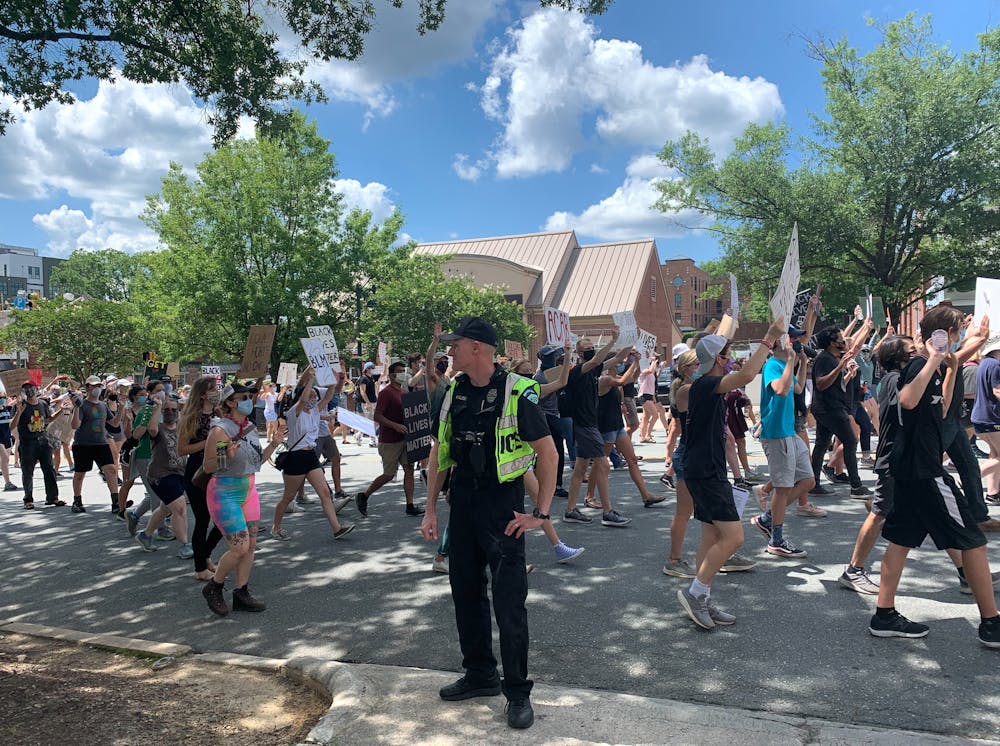Students joined local activists on Friday to march from Carrboro Arts Center Plaza to McCorkle Place, where teachers and leaders from Chapel Hill-Carrboro City Schools discussed equity, race and changes they want to see in the local school district and beyond.
As the event began, protesters kneeled and observed eight minutes and 46 seconds of silence to honor George Floyd, whose murder at the hands of four Minneapolis police officers sparked protests across the country.
Niya Fearrington, a student at Howard University, a former Carrboro High School student body president and an organizer of the protest, said every protest, both in Orange County and beyond, plays an important role in maintaining the momentum of the Black Lives Matter movement.
“They’re all coming together for the injustices of Black people dying at the hands of the police. They’re all coming together to demand change, to demand reform, they’re all coming together as a community in Chapel Hill,” Fearrington said. “I don’t think we need to negate from the fact that we have these issues in our community, so it’s shining a light on Chapel Hill, and showing them that we need to have policy change.”
The protest came just two days after community members engaged in over two hours of public comment about the Chapel Hill Town Council’s fiscal year 2020-2021 budget, which would allocate $13.95 million, or 21 percent of the town’s general budget funds, to the Chapel Hill Police Department.
Fearrington said reducing and reallocating the police budget is one change, among many, that she would like local leaders to continue in order to address equity gaps across the board.
“If you look at the money that’s committed to the police compared to the money that’s devoted to housing in our community and education, and then you look at the statistic that says we have the largest achievement gap in the nation among college towns, and you look at the gentrification that’s happening in the Northside and the Pine Knolls communities, it doesn’t reflect what we want our town to look like,” Farrington said.
Despite being named the best school district in North Carolina, research from Stanford’s Center for Education and Policy Analysis released last fall showed Chapel Hill-Carrboro City Schools to have the second-largest achievement gap between white and Black students of all districts surveyed.
Deon Temne, a recently elected member of the Chapel Hill-Carrboro City Schools Board of Education, said this achievement gap manifests in tangible ways for Black students, including his own daughter, one of two Black sixth graders in the highest level of LEAP, the district’s academically gifted program.




